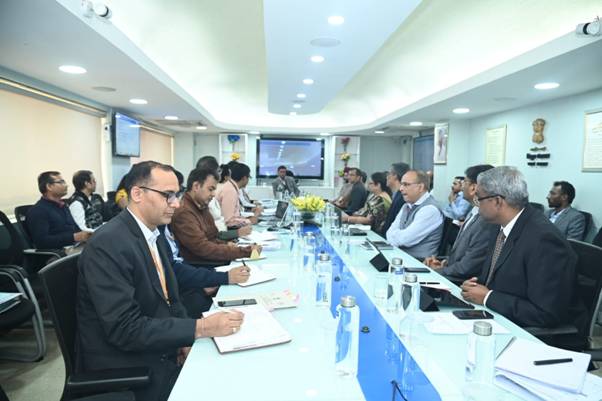The Indian government is taking a significant step towards large-scale energy storage with the development of a Viability Gap Funding (VGF) scheme for Battery Energy Storage Systems (BESS).

Key Takeaways:
- A meeting chaired by the Power and New & Renewable Energy Minister discussed finalizing the structure of the VGF scheme.
- The falling cost of BESS technology is seen as an opportunity to meet growing energy demands and facilitate the energy transition.
- BESS will help store excess renewable energy from solar and wind during peak generation and utilize it during peak demand periods, maximizing efficiency.
- Different procurement models, such as energy and capacity contracts, are being considered.
- Potential locations for BESS are being identified in states rich in renewable energy.
This initiative signifies India’s commitment to:
- Promoting renewable energy integration: BESS will address the intermittency of solar and wind power, ensuring a more reliable and stable grid.
- Cost-effective energy solutions: The VGF scheme will make BESS deployment financially viable, leading to lower energy costs.
- Sustainable energy future: By utilizing renewable energy effectively, India can reduce its dependence on fossil fuels and contribute to a cleaner environment.
Overall, this development represents a positive step towards India’s clean energy goals. The successful implementation of the BESS schem
